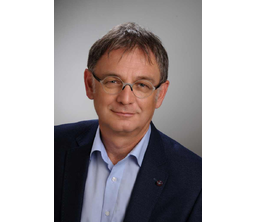Teaching and Learning - Jean Monnet Chair on Youth Work and Non-Formal Education in Europe
Over the course of the Jean Monnet Chair on Youth Work and Non-Formal Education in Europe, Professor Thimmel will strengthen his teaching and research focus on European youth policy and European youth work.
Professor Thimmel’s Jean Monnet Chair will facilitate an expansion of his teaching activities on European youth policy and European youth work. Students enrolled in the Faculty of Applied Social Science’s undergraduate programs will engage with the European dimensions of child and youth welfare and social work. Additionally, master’s students will immerse themselves in structures and concepts of youth policy, political education, and European youth work.
Two types of courses exist:
- Type A: European issues are the central focus in lectures and seminars
- Type B: Lectures and seminars are enriched by the addition of European perspectives.
Courses in Winter Semester 2020/21
- Youth and Europe (undergraduate)
- Educational Sciences (undergraduate)
- Political Education (undergraduate)
- The Meaning of Political Education in Social Work (undergraduate)
- Social Work at Schools
- Education (graduate)
- Research Perspectives / European Research Network: European Youth Policy (graduate)
- Transdisciplinary Module (graduate)
Seminar Concept
Students will become informed about specific civil society initiatives in Europe and encouraged to actively contribute to this field. In doing so, the current theory-practice networks and applied research on European education and youth welfare will be expanded and strengthened. The courses will pursue the following goals:
- Consider youth work and Europe to be inseparable. Break down nationally oriented perspectives on youth work. Reflect on educational practice with youths in the context of European issues.
- Include and anchor European studies and European politics more strongly in the curriculum of degree programs.
- Strengthen the European dimension in civil society through connecting teaching with practitioner organizations.
- Give future practitioners the necessary knowledge and skills through a research and project oriented teaching approach. In doing so, we will strengthen youth work at the European level and help to develop innovative concepts. During the coming semesters, courses will also be offered online.
 Co-funded by the Erasmus+ Programme of the European Union
(Image: EU)
Co-funded by the Erasmus+ Programme of the European Union
(Image: EU)

